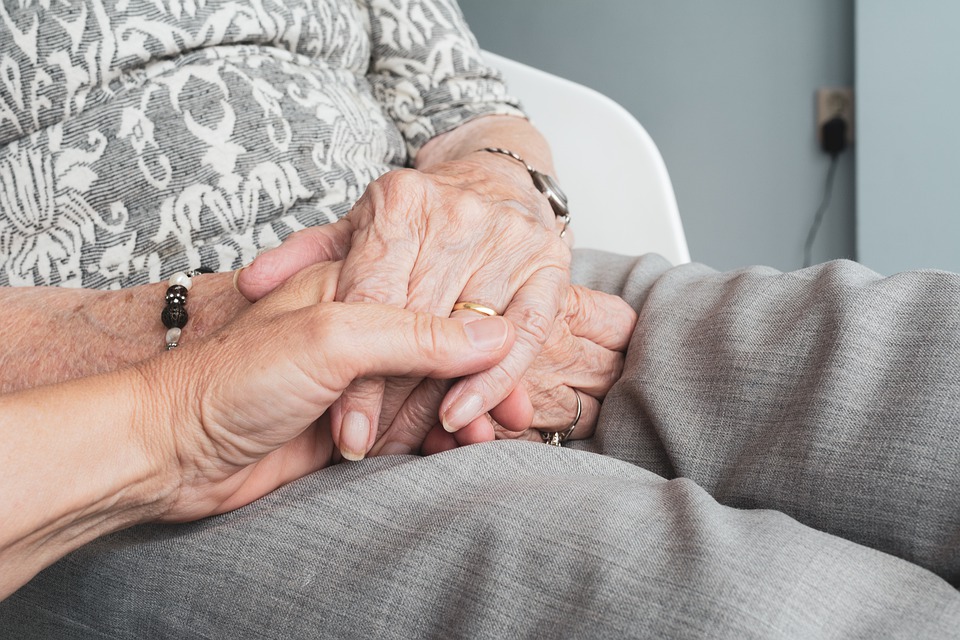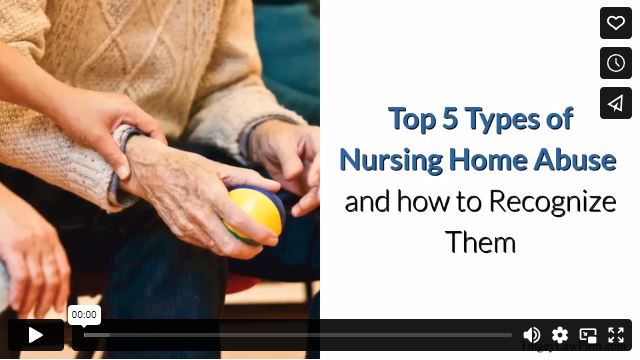There are over 6,600 beds for patients requiring skilled nursing in Nevada as well as hundreds more intermediate nursing home beds for patients who require daily custodial care.

(Pixabay / sabinevanerp)
With so many vulnerable residents living in situations in which self-advocacy is difficult or impossible, it is not hard to imagine why nursing home abuse is a sad reality for some. If you have a loved one in a nursing home, it is critical for you to recognize the signs of nursing home abuse. Moreover, you need to understand your loved one’s legal rights and advocate for legal justice if they have been harmed.
What are the most common types of nursing home abuse?
Nursing home abuse occurs when someone in a position of power harms a resident or places the resident at risk of harm. The abuser could be acting intentionally to cause injury, or the abuser could be negligent or careless of nursing home standards of care. Whether the harm – or risk of harm – is caused intentionally or through negligence, you may have the right to file a personal injury lawsuit. In cases in which abuse has contributed to death, you can reach out to a wrongful death lawyer to help you navigate the lawsuit.
Contacting a personal injury lawyer near you will not entangle you emotionally or financially. To the contrary, most lawyers will give you a cost-free initial consultation that will provide you the information you need to put your mind at ease. Each case is unique, and spending 30 minutes with an experienced lawyer is worth a week’s worth of “googling” alone at home.
It is essential for elders and their loved ones to recognize all forms of abuse and seek legal justice to ensure that such abuse is not continued.
The most common types of nursing home abuse include:
- Neglect
- Physical abuse
- Emotional or psychological abuse
- Financial abuse
- Sexual abuse
Awareness is the first step to recognizing nursing home abuse. Many people haven’t heard of elder abuse and naively assume that such hurtful behavior would be impossible in professional facilities. Reading articles like this one will help you be more conscious of the possibility of nursing home abuse and quicker to recognize it if it should happen to someone you know.
1. Neglect
According to the National Council on Aging (NCOA), neglect is the most common type of elder abuse. Neglect is not an honest mistake from a conscientious, qualified caregiver; neglect is the deliberate disregard for the well-being of an elder resulting in harm. Neglect may include the following:
- Failure to meet standards of care determined by professional regulators and certifications
- Failure to meet a resident’s basic needs for food, water, hygiene, and medical care
- Overmedicating a patient to make it easier for staff to manage the patient
- Failure to administer prescribed medications
- Failure to protect a nursing home resident from other residents
Signs of neglect in the nursing home resident may include:
- Appearing confused, lost, scared, lonely, depressed
- Appearing malnourished, dehydrated, or weak
- Complaining of hunger and thirst
- Appearing dirty
- Smelling unpleasant
- Experiencing delays in medical attention
- Experiencing bed sores
2. Physical abuse
Physical abuse involves a person in power inflicting pain or harm on the nursing home resident’s body. Other forms of abuse often accompany physical abuse.
Signs of physical abuse include:
- Appearing confused, lost, scared, lonely, depressed
- Bruises without reasonable explanation
- Burns
- Unexplained fractures or broken bones
- Infections
- Hair loss
- Wounds or cuts
3. Emotional and psychological abuse
Emotional and psychological abuse include a person in power insulting, humiliating, terrorizing, or threatening a nursing home resident.
Signs of emotional or psychological abuse include:
- Appearing depressed
- Appearing scared
- Attempting to hurt others
- Avoiding eye contact
- Disrupted eating and sleeping
- Desire to self-isolate
- Mood swings
- Low self-esteem
- Noticeable tension between an elder and a particular staff member or fellow resident
4. Financial abuse
Although financial abuse perpetrators are often family members or so-called friends of a nursing home resident, financial abuse can be perpetrated by nursing home staff, other residents, or even visitors of other residents. Financial abuse includes someone in a position of power and trust taking advantage of the elder’s financial resources.
Signs of financial abuse include:
- A pattern of missing records and money
- Unusual financial transactions
- An elder discussing financial arrangements made with another person without any accompanying documentation
- A staff member, fellow resident, or another visitor showing unusual interest in how much money a resident is spending
- Unexplained ATM or bank account withdrawals
- An unexpected change in where financial documents are sent or the type of financial documents that are received
5. Sexual abuse
Unfortunately, sexual abuse is a poorly understood and under-researched reality. Perpetrators of elder sexual abuse usually target elders with dementia, memory loss, mental illness, or difficulty communicating. Elder sexual abuse includes any sexual contact that is either unwanted by the elder or to which the elder cannot consent.
Signs of sexual abuse:
- Appearing confused, lost, scared, lonely, depressed
- Appearing angry, moody, anxious
- Testing positive for sexually transmitted diseases
- Bruising or damage to sexually sensitive areas of the body
Although nothing you do can rewind time and undo the harm suffered by your loved one, you have the right to make sure the same abuse isn’t perpetrated on other elderly patients. Moreover, filing a lawsuit may allow the elder to receive financial help to cover the costs associated with recovery. In the case of wrongful death, filing a suit may allow you and your loved ones to receive the financial help they need to cover the financial and emotional costs of the untimely or unnecessarily painful death of an elder.
The team of personal injury and wrongful death attorneys at Tingey Injury Law Firm has over 50 years of experience fighting for victims in and around the areas of Las Vegas, North Las Vegas, Henderson, and Summerlin. If you suspect nursing home abuse has occurred, or that your loved one was the victim of wrongful death, contact us today.
Video

